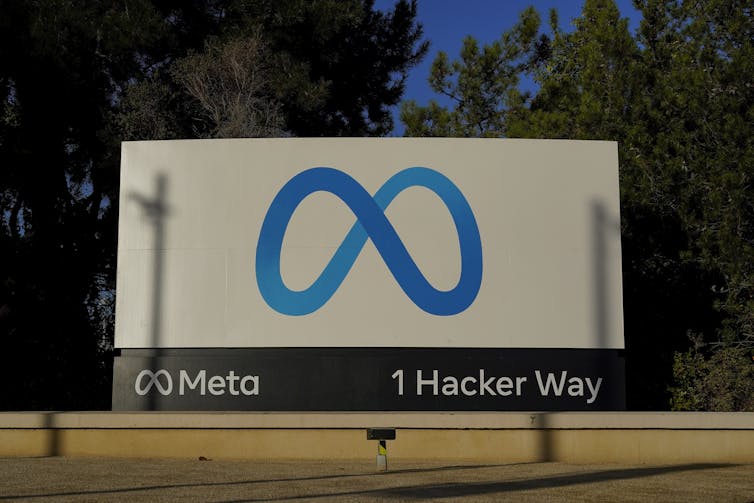Mark Zuckerberg can sack 11,000 workers but shareholders can't dump him: it's called 'management entrenchment'
- Written by Mark Humphery-Jenner, Associate Professor of Finance, UNSW Sydney

“I want to take accountability for these decisions and for how we got here,” tech billionaire Mark Zuckerberg told[1] the 11,000 staff he sacked this week.
But does he really?
The retrenchment of about 13% of the workforce[2] at Meta, owner of Facebook and Instagram, comes as Zuckerberg’s ambitions for a “metaverse” tank.
The company’s net income in the third quarter of 2022 (July to September) was US$4.4 billion[3] – less than half the US$9.2 billion it made in the same period in 2021.
That’s due to a 5% decline in total revenue and a 20% increase in costs, as the Facebook creator invested in his idea of “an embodied internet – where, instead of just viewing content, you are in it” and readied for a post-COVID boom that never came.
Read more: Is the metaverse really the future of work?[4]
Since he changed the company’s name to Meta a year ago, its stock price[5] has fallen more than 70%, from US$345 to US$101.
Facebook became Meta in 2021, expressing founder Mark Zuckerberg’s enthusiasm for the ‘metaverse’. Godofredo A. Vásquez/APSelling is really all the majority of shareholders can do. They are powerless to exert any real influence on Zuckerberg, the company’s chairman and chief executive.
If this had happened to a typical listed company, the chief executive would be under serious pressure from shareholders. But Zuckerberg, who owns about 13.6%[6] of Meta shares, is entrenched due to what is known as a dual-class share structure.
When the company listed on the NASDAQ tech stock index in 2012, most investors got to buy “class A” shares, with each share being worth one vote at company general meetings.
A few investors were issued class B shares, which are not publicly traded and are worth ten votes each.
As of January 2022[7] there were about 2.3 billion class A shares in Meta, and 412.86 million class B shares. But although class B shares represent just 15% of total stock, they represent 64% of the votes. And it means Zuckerberg alone controls more than 57% of votes – meaning the only way he can be removed as chief executive is if he votes himself out.
Meta is not the only US company with dual-class shares. Last year almost half of tech companies, and almost a quarter of all companies, that made their initial public offerings (stock exchange listing) issued dual-class shares.
This is despite considerable evidence[8] of the problems dual-class shares bring – as demonstrated by Meta’s trajectory.
Protection from the usual accountability to shareholders leads to self-interested, complacent and lazy management. Companies with dual-class structures[9] invest less efficiently and make worse takeover decisions, but pay their executives more.
Read more: Why Meta's share price collapse is good news for the future of social media[10]
Investors cannot vote Zuckerberg out. Their only real option is to sell their shares. Yet despite shares falling 70% in value, Meta’s approach has yet to change.
It’s a cautionary tale that should signal to investors the risks of investing in such companies – and highlight to policymakers and regulators the danger of allowing dual-class structures.
References
- ^ told (www.cnbc.com)
- ^ 13% of the workforce (www.cnbc.com)
- ^ US$4.4 billion (investor.fb.com)
- ^ Is the metaverse really the future of work? (theconversation.com)
- ^ stock price (finance.yahoo.com)
- ^ owns about 13.6% (capital.com)
- ^ January 2022 (capital.com)
- ^ considerable evidence (www.sec.gov)
- ^ with dual-class structures (onlinelibrary.wiley.com)
- ^ Why Meta's share price collapse is good news for the future of social media (theconversation.com)

















